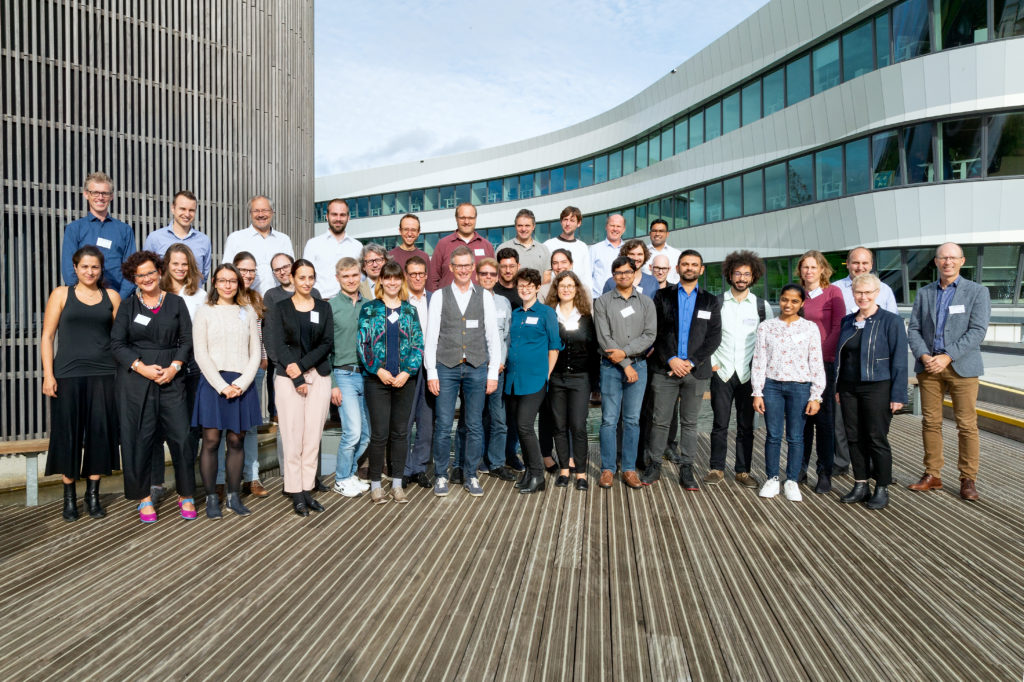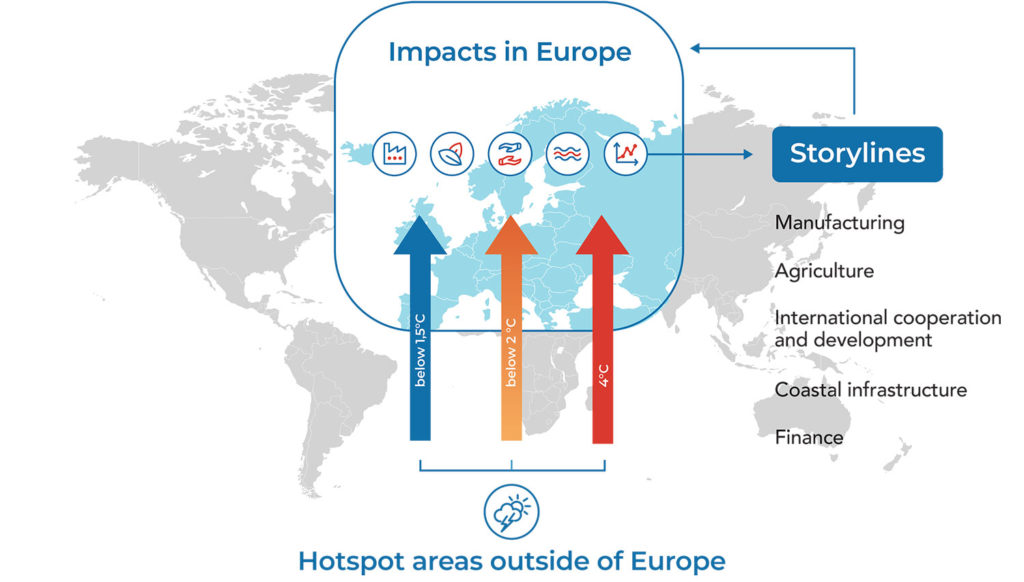It’s been just over a year since RECEIPT hosted its kick-off meeting in the Dutch city of Delft. Twelve months later, the world may seem a very different place – but the RECEIPT team continues pursuing its goal of investigating how climate risks outside Europe may impact key European socioeconomic sectors. In concrete terms, this means constructing ‘climate storylines’: chains of climate-related events, stories and data that show cause-effect over a period of time, in order to convey complex climate information in a way that is relatable for sectoral and societal stakeholders.

Climate storylines – interconnections with greater relevance than ever
One year in, the project’s goals appear more relevant than ever. Having steadily risen on the political radar in recent years, climate change took centre stage in the EU policy agenda in late 2019, when the newly appointed European Commission President Ursula von der Leyen presented the European Green Deal as her team’s flagship initiative. This reflected growing public calls for action as witnessed in climate strikes in many cities and a green wave in the EU elections. However, these developments were soon overshadowed by the story that has dominated news cycles since early 2020: the COVID-19 pandemic. Yet while climate change may have slipped down the priority list in the short-term scramble to respond to the virus, the systemic shock caused by containment measures has made abundantly clear the importance of understanding interconnections between sectors, countries or global regions – just the kind of interconnections RECEIPT is investigating in relation to climate risks.
Taking stock at the RECEIPT General Assembly
The RECEIPT General Assembly held in June also adapted to the new normal, with the planned physical meeting replaced by a virtual event. Over two and a half days, the project team logged on to participate in plenary sessions and topic-specific breakouts where they discussed the progress of their work and charted a course for the months ahead. Work package leaders presented the state-of-play in the development of sector-specific storylines – from agriculture and manufacturing, to international development, coastal infrastructure and finance. To give just two examples from the broad range of storylines in development across the project: the agriculture team will focus on soybean crops, which are very much embedded in meat and dairy products produced in the EU, and so vulnerable to remote impacts of crop production loss in Brazil/US caused by adverse drought and temperature conditions. And the finance team is investigating the impacts of large-scale hurricanes on government spending and revenue in the Caribbean and Central America 1990–2018, to understand how these impacts are translated into moral liabilities for European states.
The variety of research approaches and rich selection of storylines are a testament to the interdisciplinary nature of RECEIPT’s team, which comprises not only world-renowned climate scientists and climate risk analysts but also social scientists and societal stakeholders from NGOs and public bodies. In addition to the sector-specific discussions, the plenary also heard an update on the selection of ‘hotspot areas’ based on the preliminary findings: those parts of the world where climate impacts are likely to have a particularly significant effect on Europe’s economy and society. This was complemented by a deep-dive into the nature of systemic risks that can emerge from these hotspots, followed by an exploration of the different future socioeconomic scenarios under which these risks might unfold. Another highlight of the General Assembly was a first look at RECEIPT’s innovative storyline visualiser, which will bring the storylines to life in an interactive way online.

Research with real-world impact: the view from the Advisory Board
The General Assembly was also an occasion for the RECEIPT Advisory Board to meet. This group brings together experts from outside the project to advise and provide an external point of view on the research. Members had the chance to hear an update from the team on the state-of-play, while sharing their views and feedback on the latest developments.
For Board member Brenden Jongman, Disaster Risk Management specialist at the World Bank, RECEIPT’s ‘storylines’ approach can make a valuable contribution to bridging the gap between specialist climate science and practical real-world recommendations for action. “The biggest problem we have is the communication of complex climate and risk information to the stakeholders we work with – to translate this in a way that people can actually do something with it and take action,” he explains. “Storylines could make it easier to translate climate change risk information to specific case studies, so that people can understand what the implications are in a given scenario.”
As a researcher also focused on linkages between climate and socioeconomic impacts, Board member Simona Pedde of Wageningen University likewise sees relevance in the practical aspect of RECEIPT’s research: “With the scenarios in development in RECEIPT, you are targeting the ‘end users’ – so relevance is definitely a key pillar of the work, as these scenarios must have a real-world application. One year in, I see a lot of potential for these novel storyline methodologies to assess better the emergence of transnational impacts than are out there already, and hopefully with the inclusion of surprises and non-linearities too.”
Both were in agreement that the next twelve months will be a crucial time for RECEIPT’s research as new findings emerge and storylines begin to crystalize. Project coordinator Bart van den Hurk of Deltares, too, is looking forward to what’s next: “Now it’s time to document this first selection of storylines into an insightful visualization environment, and share it within our scientific and stakeholder communities. And we will continue by exposing the results to perturbed climatic conditions, to learn how drivers and impacts will interact under potential future conditions. A very exciting step!”
Follow RECEIPT on Twitter for all the latest updates from the research.
Published on : 30 September 2020
